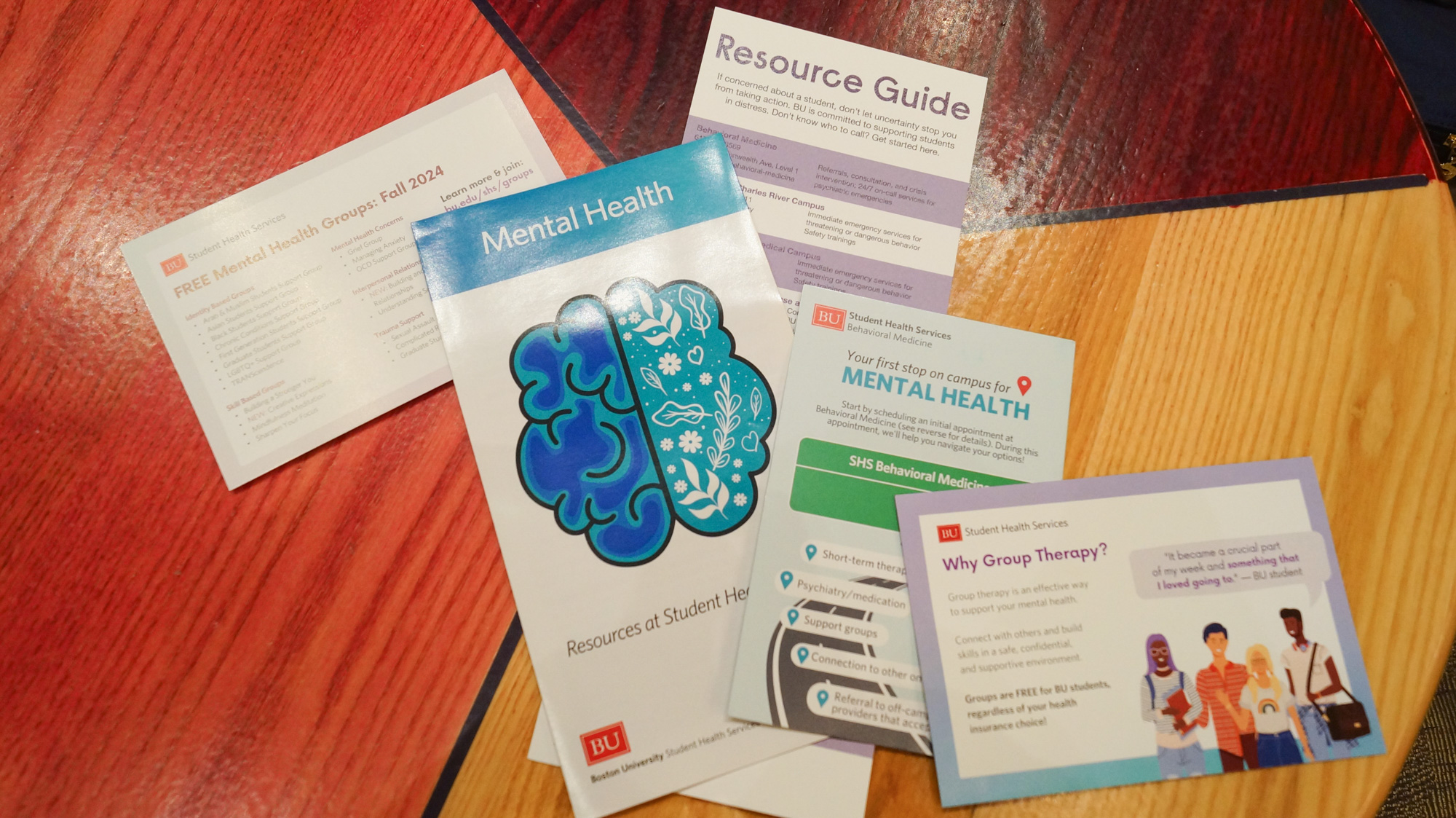Boston University was one of 16 universities listed in the Princeton Review’s inaugural “2025 Mental Health Services Honor Roll,” leaving students appreciative yet critical.

The list, released Oct. 28 following a yearlong project in partnership with the Ruderman Family Foundation, was created to benefit enrolled and soon-to-be college students by naming universities the Princeton Review determined to have a strong commitment to students’ mental health and wellbeing.
BU Executive Director of Student Wellbeing Carrie Landa said she feels a “sense of pride” for BU’s position on the list. She said she recognizes the time and collaboration it took to get BU’s mental health resources where they are now.
“It was years of really important, collaborative work and commitment to recognizing that student mental health and well being are integral to the success of our students, not just in their academics, but in their social engagement [and] in post graduation satisfaction,” Landa said.
The 16 schools selected had to display three features: overall administrative support for campus wellbeing, healthy quality of life on campus and a capacity to empower students to address their own mental health.
The Princeton Review cites BU’s more than 180 wellbeing programs, services, events and learning opportunities as evidence for its commitment to providing mental health services.
Director of Health Promotion & Prevention Katharine Mooney said “cultivating a culture of care” through mental health resources on campus requires focus and attention.
“We are living through a chaotic time in history that is posing new challenges to students’ mental health and our community mental health nearly every day,” Mooney said. “This requires us to be focused and intentional with our time and our resources.”
Landa said Student Wellbeing aims to support students’ “holistic wellbeing” through education and experiential learning. She said she thinks the University has done a “great job” in responding to increased demand for mental health services.
“BU is a really great drive in enhancing the suite of services that are offered for students, from expanding access by changing our model, by increasing capacity, by hiring more staff and then by increasing the offerings through roots and prevention programming as well,” Landa said.
Students are expressing appreciation for the University’s mental health services, but are also wishing for more.
Senior Mimi Brown said she isn’t the most familiar with mental health resources on campus, but appreciates how the University provides contact information to mental health resources, such as Sexual Assault Response & Prevention and the Behavioral Medicine Clinic, on the back of students’ Terrier Cards.
Brown is on the e-board of multiple clubs, and said the University has asked them to promote mental health resources as well.
“That’s also really helpful, that they know who the clubs are, and they want us to share those resources with our membership as well,” Brown said. “They obviously do really care about us.”
BU also houses student groups that work to promote mental health services. For example, the BIPOC Mental Health Collective serves as a communal space for students of color to take care of their mental health.
Junior Cavelle Simpson, president of BIPOC Mental Health Collective, said she still sees room for improvement on BU’s mental health services, especially when it comes to representation.
“Not everybody’s able to get in contact with a Black therapist or a Black female therapist,” Simpson said. “I know of a Black female therapist that is there, but that limits the amount of people or types of people that can access care on the University’s campus.”
Landa said she doesn’t think the University is “too busy to take on students,” but she understands if students feel the demand for services is so high that there is no room for them.
“What students want versus what can be offered are sometimes two different things,” Landa said.
While BU provides many mental health services, Simpsons said it needs a focus on diversity and representation within mental health.
“At a university that claims to have all of these resources, then you really should try to hire more people that can provide all those resources for the diverse population that we have here,” Simpson said.


















































































































